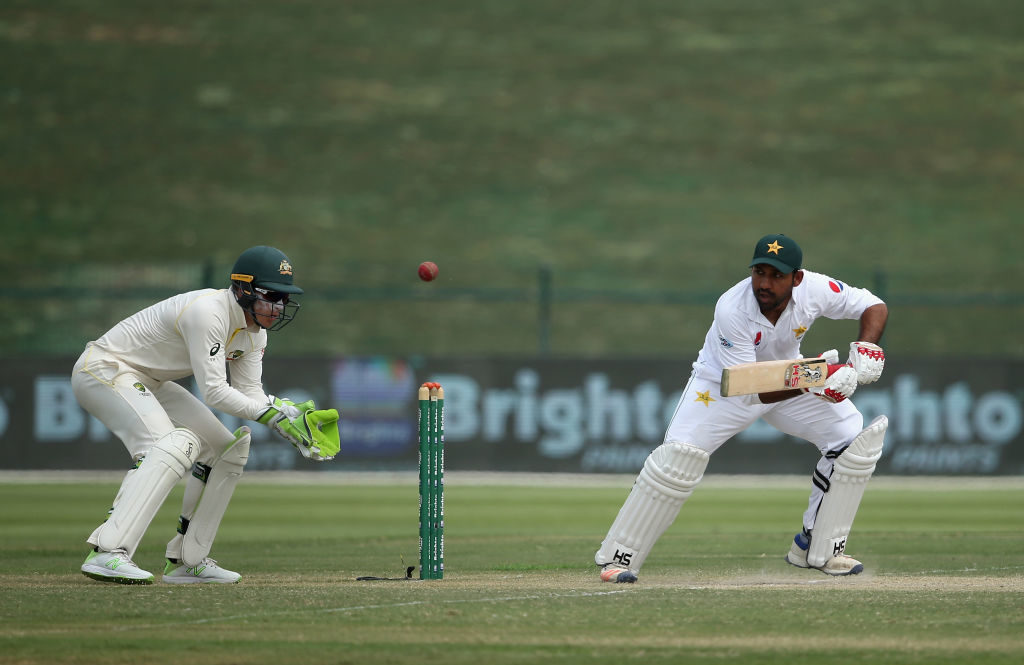Pakistan captain Sarfraz Ahmed, who helped set up the series win over Australia with innings of 94 and 81 in the second Test in Abu Dhabi, believes that batsmen have enough to worry about without getting involved in verbal jousts with bowlers and fielders.
Ahmed said after the match that, although Tim Paine’s Australian side have undergone a seismic change in terms of their dressing room culture – including pre-match handshakes and cutting out personal verbal abuse – they certainly haven’t become shrinking violets.
Ahmed highlighted Aussie spinner Nathan Lyon as one player who was particularly vocal during the series.
‘We had quite a bit of chatter throughout with him. He spoke a lot and we did as well,’ revealed Ahmed in a post-match conference after the match. ‘I told him that “you’ve had a six hit off you, if I was in your place I would want to be hit for another six by keeping mid-on up”.
‘It was nothing unusual … but it wasn’t like it was an especially polite atmosphere out there.’
Sarfraz is not afraid of fronting up to verbal challenges, as his recent spats with New Zealand’s Martin Guptill and Australia’s Glenn Maxwell will attest, but he believes batsmen need to bat smart when it comes to on-field chatter.
‘If you go to Australia or South Africa, you know there you are already fighting such top teams, you’re fighting with bounce, with swing, with seam. If you start fighting the players, you’re making it more difficult for yourself.
‘It’s a simple formula, when you are batting, don’t look for trouble. Just play cricket and concentrate on your performance. You’re already playing such top teams. If some guy does say something to you, if he says something personal, then OK you can talk back, but otherwise, you don’t need to say anything. Play and perform,’ said Ahmed, who was sidelined on the final day after waking up with signs of concussion after being hit on the head by a short ball from Peter Siddle.
Ahmed and his team took a number of lessons from the match.
‘First of all, never give up. There are few teams that can stage such a massive win in four days after losing five wickets in the first session. As a captain, I have learned that I have to keep fighting and keep telling the remaining players not to throw their wickets away.
‘The contribution by the tail becomes very important in such a scenario. Bilal Asif, Yasir Shah, and Mohammad Abbas’ contributions with the bat helped. This is what we have learned.
‘The way we staged the comeback, it makes us look more mentally strong than Australia. Credit goes to Fakhar Zaman on how he played with me. And, then in the second innings again, Azhar Ali, Fakhar Zaman, Asad Shafiq, Babar Azam, all of the batters. Pakistan have been a better team in the series,’ added Ahmed.
Sources: ICC, ESPNCricinfo
Photo: Francois Nel/Getty Images







